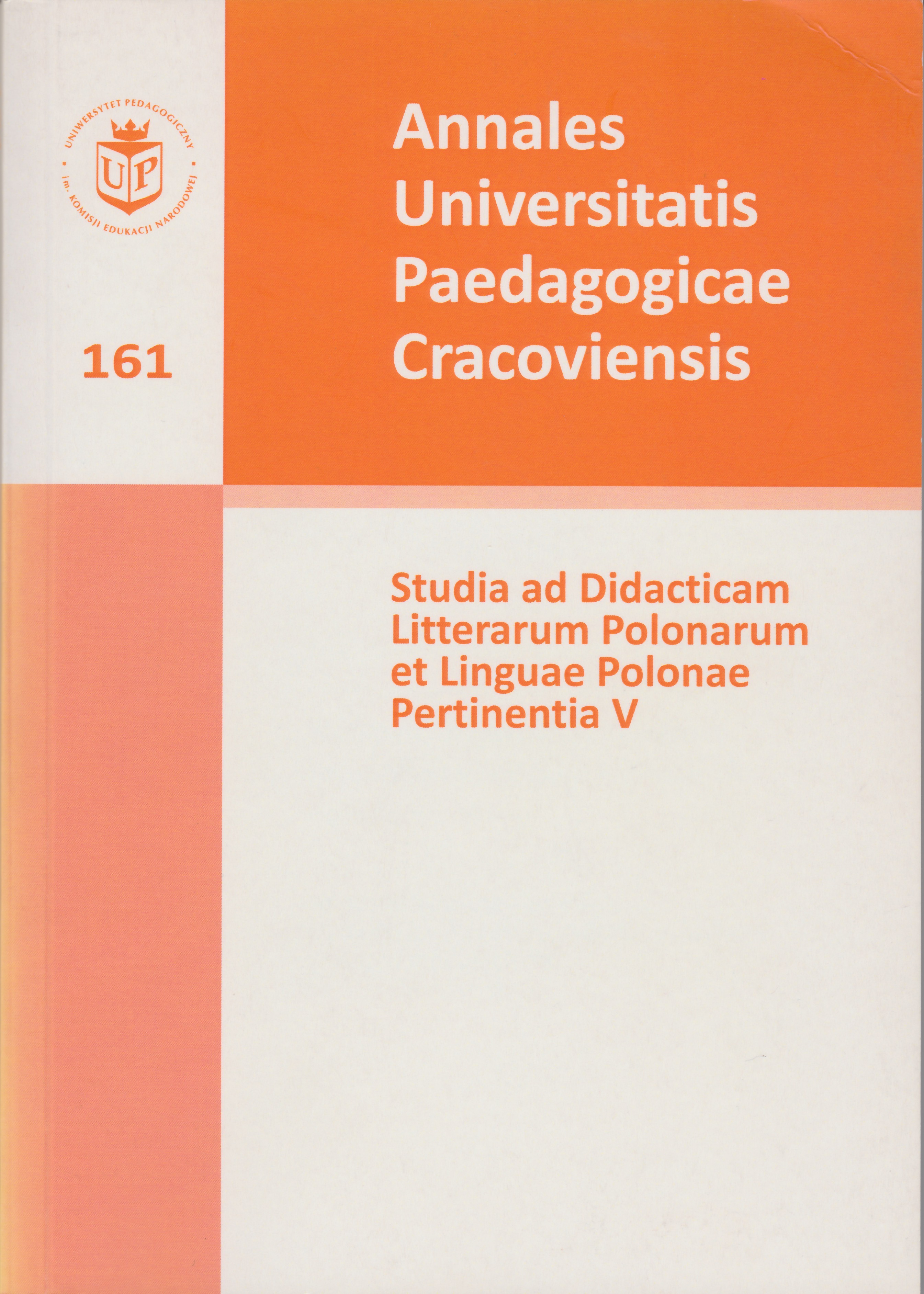Integracyjne perspektywy kulturoznawczego kształcenia językowego w gimnazjum i liceum
Integrative perspectives of culture-related language teaching in lower secondary and secondary schools
Author(s): Katarzyna GrudzińskaSubject(s): Language and Literature Studies, Education, Applied Linguistics
Published by: Wydawnictwo Uniwersytetu Komisji Edukacji Narodowej w Krakowie
Keywords: integration; language education; linguistic image of the world; cultural competent;
Summary/Abstract: The purpose of the article is to indicate the areas of inner- and interobjective integration which are determined by the realization of linguistic-related cultural issues. The idea of culturerelatedness has developed in the methodology of teaching the Polish language in the context of the discussion on praxeology – a dispute about the concept of school language education which aims at establishing a proportion between the practical-normative and theoreticalcognitive objectives. The development of cognitivism and cultural linguistics as well asresearch on the linguistic image of the world revealed that it was reasonable to reconsider the advantages of the cognitive aspects related to linguistics. Research on the language considered as a specific document of the spiritual and material history considerably exceeds the area of traditional descriptive grammar. It can become an important and coherent component of cultural education which also includes the development of the communicative competence – since a prerequisite for competent communication is reaching the semantic essence of the language, which means, among other, recognizing the cultural legacy in its various aspects. The image of the past history of the nation, its mentality, views, habits and customs which iscontained in the language constitutes a cultural teaching material that can potentially bring numerous educational benefits such as initiating pupils into aware participation in cultureand stimulating their interest in linguistics. Another advantage of culture-related language education is its integrative potential; it can become a part of a coherent language teachingsystem that would be realized by innerobjective integration. Culture-related content is a component that consolidates linguistic and literary-cultural education. Acting as a base forthe teaching material, it also opens up a possibility of interobjective correlation.
- Issue Year: 5/2014
- Issue No: 161
- Page Range: 95-104
- Page Count: 10
- Language: Polish

